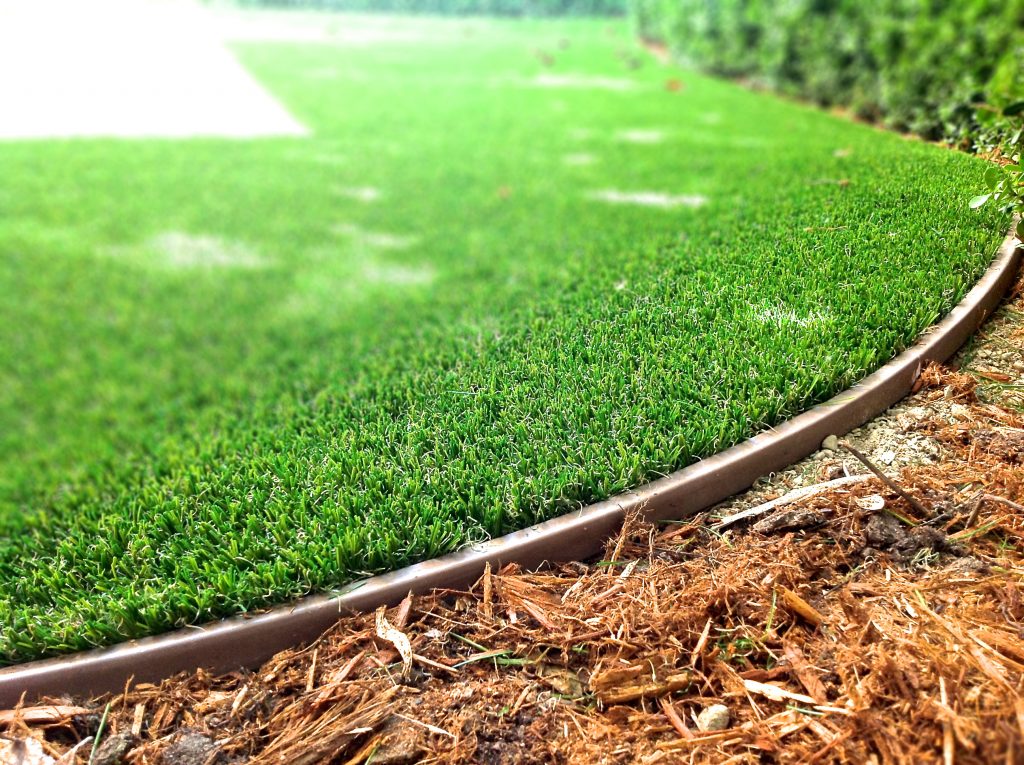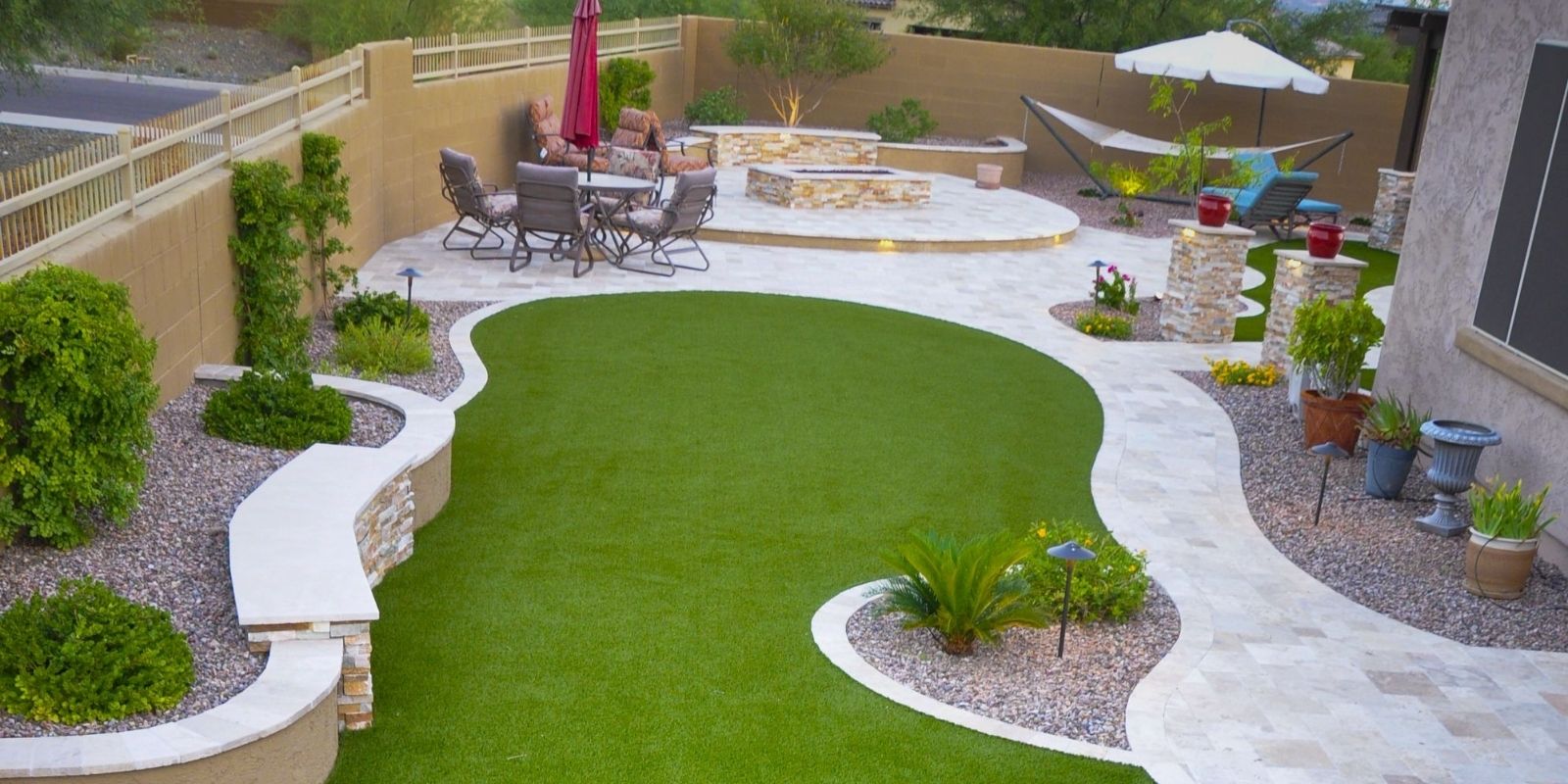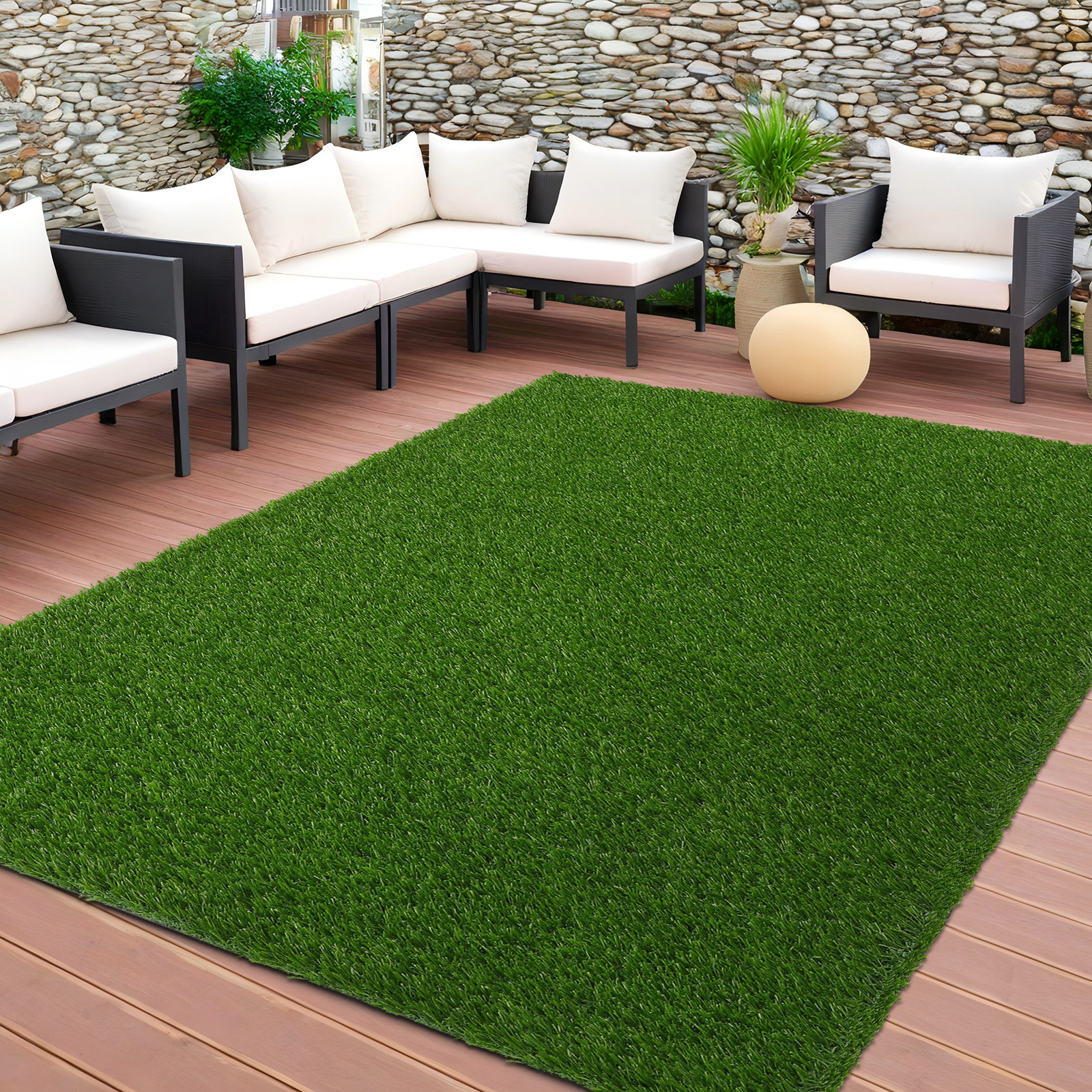Long-Lasting Arizona Artificial Turf for Residential and Commercial Applications
Long-Lasting Arizona Artificial Turf for Residential and Commercial Applications
Blog Article
Explore the Environmental Conveniences of Opting for Synthetic Grass Solutions
The adoption of fabricated turf services presents a compelling opportunity to deal with pressing environmental obstacles. By significantly reducing water use and decreasing the application of harmful chemicals, these options not only advertise lasting landscaping but also protect neighborhood ecosystems. The lower carbon impact linked with lowered upkeep tasks contributes to an extra lasting method to land management. The effects of these advantages extend past mere conservation initiatives, elevating questions regarding their lasting effect on environment preservation and general environmental equilibrium. Exploring these dimensions reveals an intricate interplay worth taking into consideration.
Water Preservation Benefits
One of the most substantial benefits of synthetic grass is its capability to save water. Standard yard yards call for significant watering, specifically in locations vulnerable to dry spell or water constraints. In contrast, synthetic grass does not need watering, substantially lowering the overall need for water sources. This function is particularly beneficial in deserts where water scarcity is a pushing concern.
By removing the need for routine watering, artificial lawn contributes to lasting landscape techniques and assists minimize the environmental effect of too much water usage. The conservation of water prolongs to the decrease of runoff, which can lead to dirt erosion and river pollution.
In addition, the installation of man-made lawn permits homeowners and municipalities to assign water sources extra successfully, concentrating on vital uses such as drinking water and agriculture. The change towards synthetic grass not only promotes accountable water usage however likewise aligns with wider environmental goals focused on preserving natural resources.
As communities increasingly focus on sustainability, the water preservation advantages of fabricated lawn offer an engaging instance for its fostering in commercial and residential landscape design jobs.
Reduced Chemical Use
The transition to synthetic grass substantially reduces the reliance on chemical treatments commonly made use of in all-natural turf maintenance. Standard grass management generally includes the application of fertilizers, herbicides, and chemicals to promote growth and control pests. These chemicals can posture risks to human wellness, local wild animals, and the atmosphere, adding to soil and water contamination.
In contrast, fabricated turf removes the need for these harmful compounds. Once mounted, it calls for very little upkeep, largely including normal cleaning and infrequent infill replenishment. This reduction in chemical use not just profits the prompt environment however also adds to broader environmental security. By minimizing the launch of synthetic compounds right into the ecological community, synthetic grass advertises healthier dirt and water supply.
Furthermore, the absence of chemical overflow related to synthetic grass installations helps protect neighborhood waterways from pollution, supporting aquatic life and preserving biodiversity. Turf installation phoenix az. As neighborhoods progressively prioritize sustainable methods, choosing for artificial lawn presents a sensible remedy that straightens with environmental preservation goals. Through this shift, home owners can take pleasure in rich eco-friendly spaces without endangering ecological wellness, leading the way for a much more lasting future
Lower Carbon Footprint

Furthermore, the setup of artificial grass can cause considerable water conservation. All-natural grass require significant amounts of water for watering, which not just includes to the carbon footprint connected with water removal and therapy but likewise pressures local water sources. On the other hand, synthetic grass requires marginal maintenance, requiring no watering, consequently significantly decreasing water use and its linked power prices.
In addition, read more the durability of synthetic grass adds to its decreased carbon effect. With a life expectancy of up to 15 years or more, the requirement for regular substitutes is lessened, causing much less waste and reduced energy usage in production and dealing with typical grass choices. Overall, artificial lawn offers a sustainable choice for eco conscious landscape design.
Environment Preservation
Habitat conservation is a critical factor to consider in the debate over landscaping choices, specifically when contrasting fabricated turf to all-natural lawn. Natural grass lawns typically require extensive upkeep, including making use of pesticides, herbicides, and fertilizers, which can detrimentally influence neighborhood ecosystems. These chemicals can seep into the dirt and rivers, hurting indigenous plants and animals and interfering with neighborhood habitats.
On the other hand, synthetic grass presents a chance to reduce the eco-friendly footprint of landscape article design. By choosing artificial turf, house owners can minimize the disturbance of all-natural environments connected with typical yard care methods. Fabricated grass removes the need for unsafe chemicals, thus shielding nearby wild animals and keeping the integrity of surrounding environments. Moreover, the setup of fabricated turf can result in the conversion of previous yard areas into more biodiverse landscapes, such as pollinator yards or indigenous plant locations, which can sustain local wildlife.
Eventually, the transition to synthetic grass not just saves water and minimizes maintenance initiatives yet additionally cultivates a much more harmonious connection between human tasks and the natural surroundings, promoting habitat conservation in the procedure.
Long-Term Sustainability
Long-lasting sustainability is a vital consider examining the advantages of fabricated lawn over typical lawn lawns. Among the most significant advantages of synthetic grass is its durability; it can last approximately 15-20 years with very little maintenance, whereas all-natural grass calls for frequent reseeding and replacement. This long life decreases the demand for continuous resources, such as water, plant foods, and pesticides, which are essential for maintaining a healthy yard lawn.
In addition, fabricated lawn adds to a decrease in carbon emissions connected with lawn treatment equipment. Standard grass usually need gas-powered lawn mowers, leaners, and blowers, all of which add to air pollution. Arizona artificial turf. In contrast, synthetic grass eliminates the need for such equipment, promoting a cleaner setting
Additionally, the manufacturing of synthetic grass progressively makes use of recycled products, enhancing its sustainability account. As suppliers adopt green methods, the ecological impact of artificial grass remains to decrease.

Conclusion
The adoption of synthetic grass remedies offers substantial ecological benefits, including substantial water conservation, reduced dependence on damaging chemicals, and a lower carbon impact. Furthermore, synthetic grass help in protecting natural habitats by minimizing land disruption and promoting lasting sustainability with making use of durable products. Jointly, these factors emphasize the capacity of synthetic grass to add favorably to environmental health and supply a sensible choice to conventional landscaping techniques in a progressively resource-conscious world.
In comparison, man-made turf does not require watering, substantially decreasing the overall need for water resources. By lessening the release of artificial compounds right into the ecosystem, fabricated grass advertises healthier dirt and water systems.
Additionally, the setup of man-made turf can result in significant water conservation. In contrast, fabricated grass requires minimal upkeep, calling for no watering, therefore significantly minimizing water usage and its connected energy costs.

Report this page